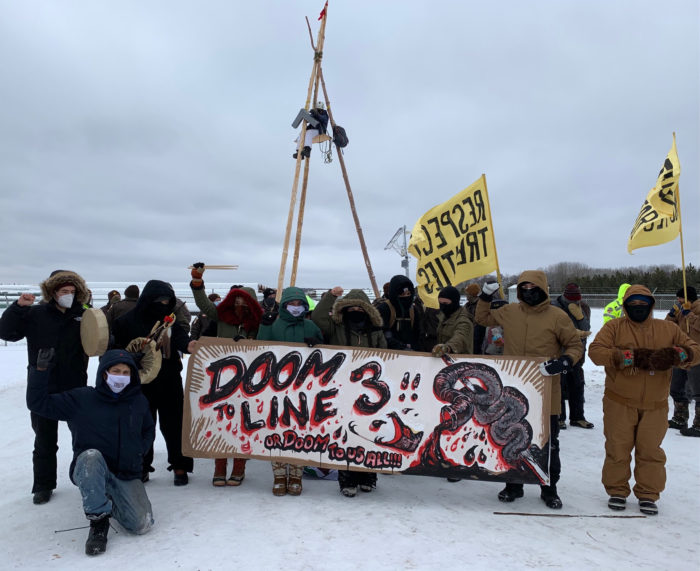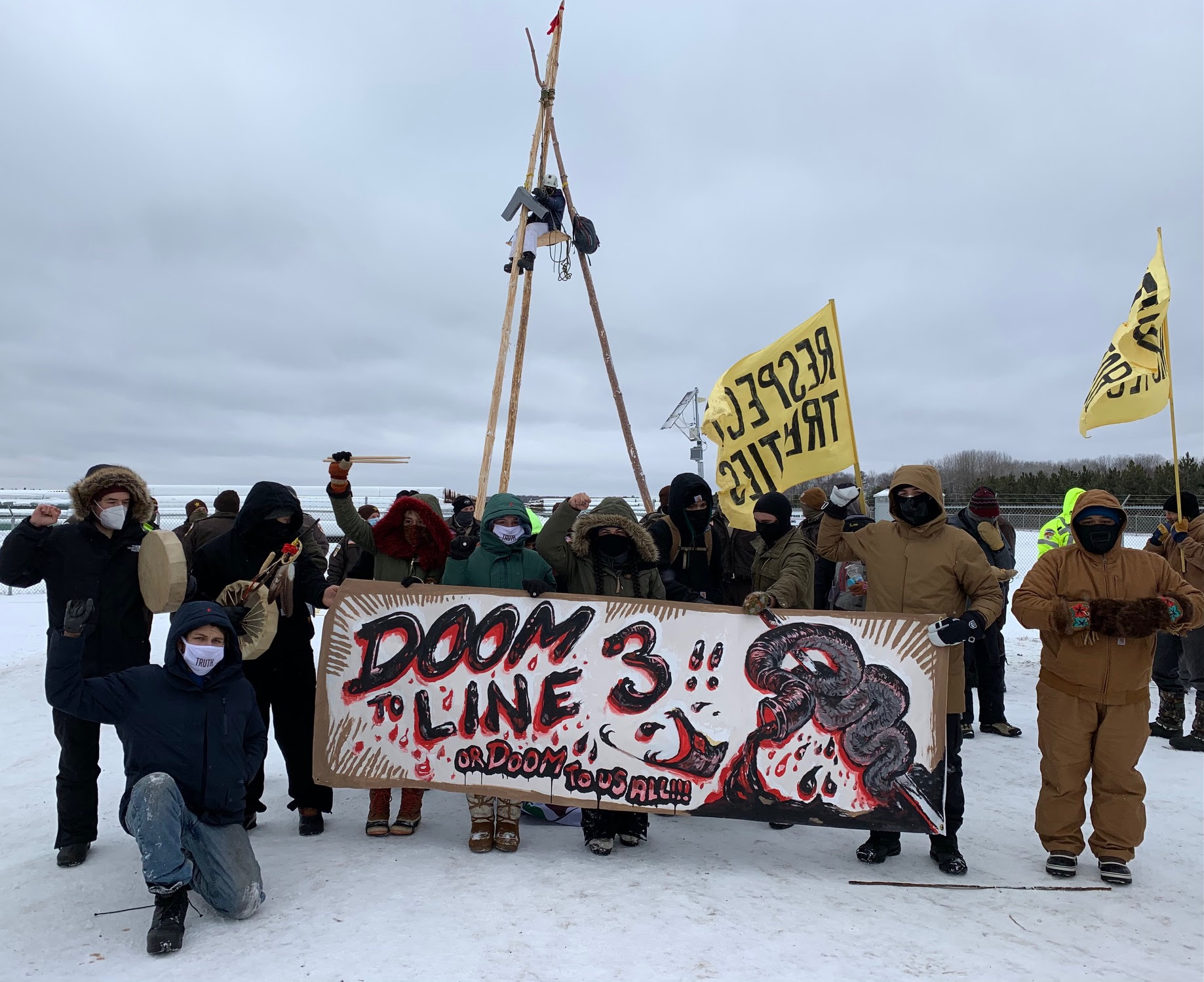
The more than 1,000-mile Line 3 project from Calgary-based energy giant Enbridge is one of the largest tar sands pipelines ever proposed in North America. If completed, it would carry up to 915,000 barrels of oil a day from Alberta to Wisconsin through Minnesota. Construction on the pipeline has begun after years of delays and despite widespread opposition from communities on the ground. But efforts to stop the pipeline continue – there have been new legal challenges, direct actions, prayer lodges and efforts to pressure the new Biden Administration to cancel the pipeline, just as it did for Keystone XL pipeline.
Over the last six months, RAN has made a series of grants from our Community Action Grant program to Indigenous and frontline community partners in Minnesota. These funds are providing critical support to their campaign to keep fossil fuels in the ground and stop the deeply unpopular Line 3 pipeline. Funds provided support to:
- The Gitchigumi Scouts, as they lead community patrols related to fossil fuel infrastructures and monitor the impacts on extractive industries on Native communities, particularly on Indigenous women.
- The Giniw Collective, as they lead bold, nonviolent direct actions, along with initiatives like the Indigenous Media Makers #Stop Line 3 project. This project responds to a need identified by Indigenous water protectors on the frontlines for training and tools to engage with the media to tell their stories.
Additionally, RAN met rapid response requests from other organizations, including legal support and mutual aid. RAN has distributed over $35,000 since November for Line 3’s resistance and continues to raise ongoing funds through matching appeals and our small grants program.
